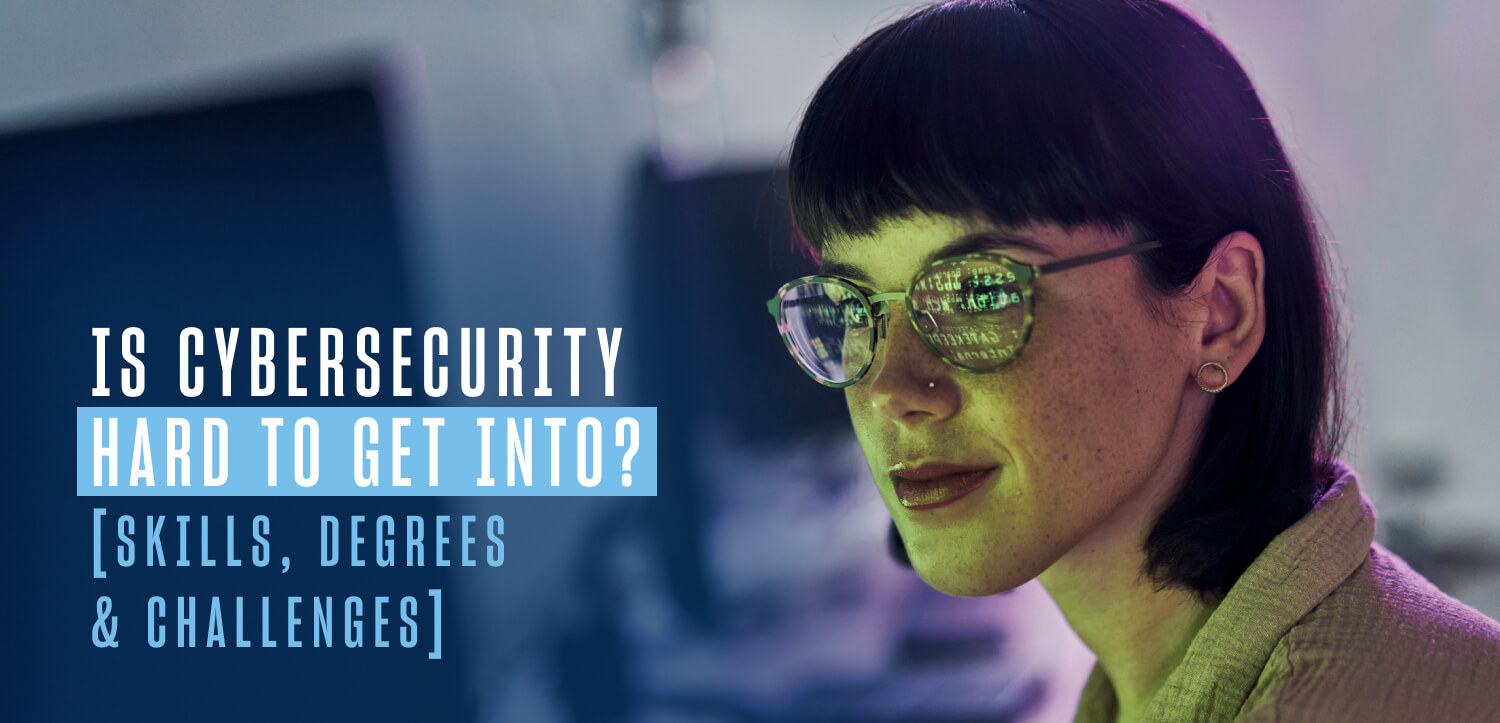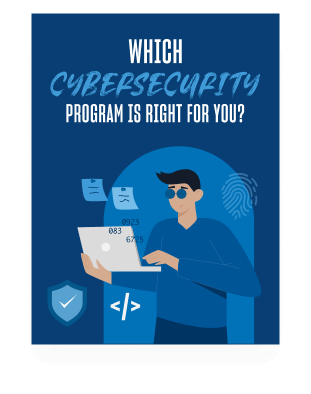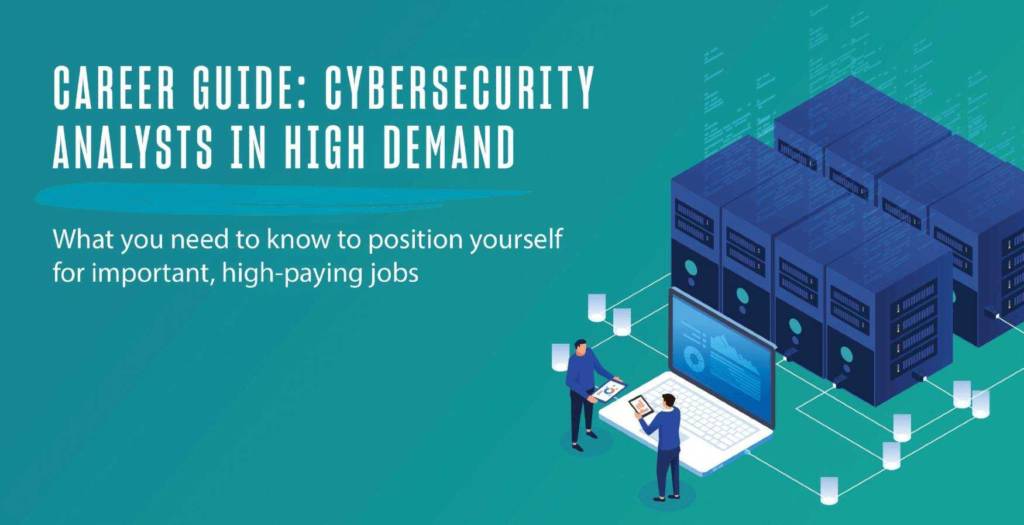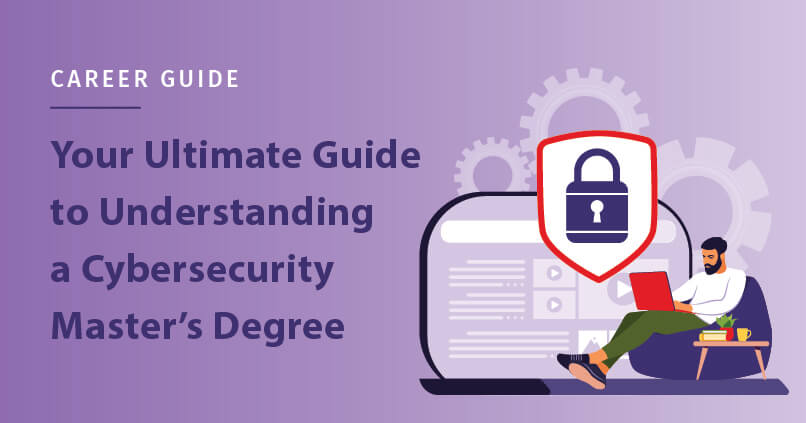As cyber threats become more sophisticated, organizations need skilled professionals to defend their networks, data and infrastructure. Cybersecurity is a high-demand field with strong job growth and lucrative salaries, but many aspiring professionals wonder: Is cybersecurity hard to get into?
The answer depends on your background, skill development and career path. While cybersecurity requires technical expertise and continuous learning, it is accessible to those willing to build the right foundation. This guide explores the skills needed, challenges newcomers face and strategies for breaking into cybersecurity successfully.
Overview of the Demand for Cybersecurity Professionals
Cybersecurity is one of the fastest-growing fields in tech, with increasing job opportunities across industries. Organizations of all sizes are investing in security professionals to protect against data breaches, cyberattacks and compliance risks. Here’s a look at some of the latest cybersecurity demand statistics:
- According to the U.S. Bureau of Labor Statistics (BLS), cybersecurity jobs are projected to grow 32% from 2022 to 2032, much faster than the average for all occupations.
- CyberSeek reports that over 450,000 cybersecurity job openings remain unfilled in the U.S.
Not looking to work exclusively in tech? Not a problem! The need for cybersecurity professionals extends beyond tech companies. Industries such as healthcare, finance and government agencies are actively recruiting talent to strengthen their security posture and comply with evolving regulations.
Healthcare Sector
The healthcare industry has become a prime target for cyberattacks due to the sensitive nature of patient data and the increasing digitization of health records. Cybercriminals exploit vulnerabilities in hospital networks and medical devices, leading to data breaches that compromise patient confidentiality and safety.
For instance, in February 2024, Change Healthcare experienced a ransomware attack that compromised the protected health information of approximately 190 million individuals, marking one of the largest healthcare data breaches to date. Similarly, in June 2024, Acadian Ambulance Service suffered a cyberattack affecting nearly 2.9 million current and former patients, highlighting the sector’s vulnerability.
Consequently, healthcare organizations are investing heavily in cybersecurity professionals to protect electronic health records and ensure compliance with regulations like the Health Insurance Portability and Accountability Act (HIPAA).
Financial Services
Cybercriminals consistently target financial institutions to exploit financial transactions and personal data. Recent incidents, including the 2024 breach at Evolve Bank & Trust affecting 7.6 million individuals and the 2024 attack on SRP Federal Credit Union compromising sensitive information of over 240,000 members, highlight the vulnerabilities within the financial sector.
In response, banks and financial services firms are prioritizing the recruitment of cybersecurity experts to safeguard assets, maintain customer trust and adhere to regulatory requirements such as the Payment Card Industry Data Security Standard (PCI DSS). The increasing adoption of digital banking services further amplifies the need for skilled cybersecurity professionals to counter sophisticated threats.
Government Agencies
Government entities manage vast amounts of sensitive information, making them attractive targets for nation-state actors and hacktivists. The December 2024 cyberattack attributed to Chinese state-sponsored hackers targeting U.S. federal agencies highlights the potential impact of cyber threats on national security.
In response, government agencies are enhancing their cybersecurity capabilities by hiring qualified professionals to protect critical infrastructure and comply with standards such as the Federal Information Security Management Act (FISMA). Despite recent layoffs in certain departments, the overall need for cybersecurity expertise remains significant.
Energy Sector
The energy industry faces unique cybersecurity challenges due to the potential for attacks on critical infrastructure. In May 2023, a cyberattack targeted Denmark’s energy sector, affecting 22 companies through a vulnerability in Zyxel firewalls, illustrating the sector’s vulnerabilities. To mitigate such risks, energy companies are actively recruiting cybersecurity professionals to protect operational technologies and ensure the reliability of power systems.
Educational Institutions
Educational institutions are increasingly targets of cyber threats that aim to access personal data and disrupt operations. In August 2023, the University of Michigan suffered a significant data breach, resulting in the theft of sensitive personal information of approximately 230,000 individuals, including students, alumni and employees. The compromised data encompassed financial account details, Social Security numbers, driver’s license information and health records.
Key Skills Needed for Entering the Cybersecurity Workforce
Success in cybersecurity requires a combination of technical expertise and soft skills. Employers look for professionals who can analyze threats, implement security measures and communicate effectively.
As a cybersecurity professional, you’ll need to be proficient in the following technical skills:
- Networking and security protocols – Understanding TCP/IP, DNS, VPNs and firewalls
- Security tools and frameworks – Familiarity with SIEM, IDS/IPS, endpoint protection and threat intelligence platforms
- Vulnerability assessment and penetration testing – Identifying and mitigating security weaknesses
- Cryptography and encryption – Protecting data through secure encryption methods
- Programming, coding and scripting – Python, PowerShell, JavaScript and Bash for automating security tasks
The following soft skills are also important for those pursuing careers in cybersecurity:
- Problem-solving and critical thinking – Quickly assessing threats and implementing solutions
- Communication and collaboration – Explaining security concepts to non-technical stakeholders
- Attention to detail – Identifying vulnerabilities and monitoring systems for anomalies
- Adaptability and continuous learning – Keeping up with evolving threats and new security technologies
RELATED: Want to build the right skills for a cybersecurity career? Explore USD’s Cyber Security Engineering and Cyber Security Operations and Leadership master’s programs >>
A Comparison of the Difficulty of Different Career Paths Within Cybersecurity
Some cybersecurity roles require deeper technical expertise than others. Here’s how different career paths compare:
| Career Path | Difficulty Level | Primary Responsibilities |
| Penetration testing | High | Conducts ethical hacking, identifies vulnerabilities and performs security testing |
| Security analyst | Medium | Monitors security alerts, investigates threats and enforces security policies |
| Security architect | High | Designs secure IT infrastructure and develops long-term security strategies |
| Incident responder | Medium-High | Investigates and mitigates security incidents, forensic analysis |
| Chief information security officer | High | Leads an organization’s cybersecurity strategy and compliance efforts |
Common Challenges Faced by Students Pursuing Cybersecurity Degrees
Pursuing a cybersecurity degree offers valuable knowledge, but students may encounter specific challenges during their educational journey. Here’s an overview of common hurdles and strategies to overcome them:
1. Gaining Practical Experience
While theoretical learning is essential, many cybersecurity roles require hands-on skills that some academic programs might not fully provide.
Solution: Engage in internships, participate in cybersecurity labs, join capture the flag (CTF) competitions and attend bootcamps to acquire practical experience. These activities enhance your resume and prepare you for real-world scenarios.
2. Keeping Up with Rapid Technological Changes
The cybersecurity field evolves quickly, with new threats and tools emerging regularly.
Solution: Stay informed by following cybersecurity news, enrolling in online courses and earning industry certifications. Continuous learning ensures you remain current with the latest developments.
3. Overcoming Imposter Syndrome
The vast scope of cybersecurity can be intimidating, leading some students to doubt their capabilities.
Solution: Acknowledge that feeling challenged is part of the learning process. Seek mentorship from experienced professionals and engage with supportive communities to build confidence and perspective.
4. Balancing Technical and Soft Skills
Success in cybersecurity requires not only technical expertise but also strong communication and collaboration abilities.
Solution: Develop interpersonal skills alongside your technical studies. Participate in activities that enhance public speaking, writing and teamwork to effectively convey complex ideas and work within diverse teams.
Selecting an educational program that addresses these challenges is crucial for your success in cybersecurity. The University of San Diego offers two master’s degrees that meet these needs:
- Master of Science in Cyber Security Engineering: This program emphasizes the engineering aspects of cybersecurity, preparing students to develop and implement secure systems.
- Master of Science in Cyber Security Operations and Leadership: Focused on operational cybersecurity and leadership skills, this program equips students to manage and lead cybersecurity initiatives.
Both programs provide practical experience, keep pace with technological advancements and develop both technical and soft skills, ensuring graduates are well-prepared to excel in the cybersecurity field.
Tips to Overcome the Perceived Difficulty and Start a Successful Career
Breaking into cybersecurity might seem overwhelming at first, but with the right approach, you can build the skills and experience needed to succeed. Here are some practical steps to help you get started and stand out:
1. Gain Hands-On Experience
Employers prioritize candidates with real-world experience, even for entry-level roles. Here’s how to build your skills:
- Internships and apprenticeships – Look for cybersecurity internships that provide exposure to security operations, risk management and network defense
- Virtual labs and capture the flag challenges – Platforms like Hack The Box, TryHackMe and CyberSeek offer environments to practice ethical hacking, vulnerability assessment and forensics
- Side projects – Contribute to open-source security projects, create scripts for automating security tasks or test security tools in a home lab setup
2. Build a Strong Portfolio
A well-documented portfolio demonstrates your abilities to potential employers. Try to include:
- Security research and vulnerability reports – Write blog posts or publish findings on platforms such as Medium or GitHub
- Technical write-ups – Document your process for solving CTF challenges or penetration tests
- Certifications and coursework projects – Showcase relevant certifications and coursework that involved practical application
3. Leverage Online Learning and Industry Resources
Cybersecurity is constantly evolving, making continuous learning essential. Take advantage of:
- Free and paid courses – Coursera, Cybrary and SANS Cyber Aces offer foundational and advanced security courses
- Cybersecurity blogs and podcasts – Follow experts and industry news to stay informed about emerging threats
- Webinars and virtual events – Many cybersecurity organizations host free educational sessions featuring industry leaders
4. Network and Engage with the Cybersecurity Community
Connecting with professionals in the field can open doors to job opportunities and mentorship. Get involved by:
- Joining professional organizations – Groups such as the Information Systems Security Association (ISSA), National Cybersecurity Alliance, Women in Cybersecurity (WiCyS) and International Association of Privacy Professionals (IAPP) offer networking and training opportunities
- Attending cybersecurity conferences – Events like DEF CON, Black Hat and the RSA Conference provide valuable learning and networking experiences
- Engaging in online communities – Participate in LinkedIn groups, Reddit’s cybersecurity forums or Discord servers dedicated to security topics
5. Stay Informed on Cybersecurity Trends
The cybersecurity field moves quickly, with new threats emerging daily. Stay ahead by:
- Following cybersecurity news sites – Resources such as Krebs on Security, Dark Reading and Bleeping Computer provide up-to-date threat intelligence
- Monitoring government and industry reports – Follow the cybersecurity guidelines and risk reports released by the Cybersecurity and Infrastructure Security Agency (CISA) and the National Institute of Standards and Technology (NIST)
6. Obtain a Cybersecurity Master’s Degree
A cybersecurity degree can provide the skills and credentials needed to advance in the field. Choosing the right program depends on your career goals, learning style and level of experience.
Online vs. In-Person Degree
- Online programs offer flexibility, affordability and access to a wider range of schools but require self-discipline and proactive networking
- In-person programs provide hands-on lab experience, structured learning and in-person networking but may be costlier and less flexible
Bachelor’s vs. Master’s in Cybersecurity
- A bachelor’s degree is ideal for those just starting, covering fundamental cybersecurity concepts, networking and security protocols
- A master’s degree is valuable for career changers and professionals looking to specialize in areas including penetration testing, risk management or leadership roles
Cyber Security Operations and Leadership vs. Cyber Security Engineering
- USD’s MS in Cyber Security Operations and Leadership is designed for professionals who want to lead security teams, manage risk and develop policies that safeguard organizations from cyber threats. This program emphasizes governance, compliance and strategic decision-making, making it ideal for those who want to oversee cybersecurity operations or transition into leadership roles.
- The MS in Cyber Security Engineering focuses on the technical aspects of security, including secure system design, vulnerability testing and advanced threat mitigation. This program is suited for those with a background in IT, engineering or software development who want to build and deploy secure infrastructure and counteract cyberattacks at a technical level.
Navigating the Job Search With a Master’s Degree and Limited Experience
Earning a cybersecurity master’s is a valuable step toward a career in the field, but landing that first job can be challenging without hands-on experience. Many employers look for practical skills in addition to education, so it’s important to position yourself as a strong candidate who can fulfill the role requirements.
Here’s how to stand out in a competitive job market:
- Highlight academic projects when applying for roles – Emphasize security research, lab work and coursework
- Earn cybersecurity certifications – Consider Certified Information Systems Security Professional (CISSP), Certified Ethical Hacker (CEH) and CISA to validate your skills
- Gain experience through internships – Even short-term experience can make a difference
- Showcase transferable skills – Emphasize problem-solving, coding and analytical thinking
- Network and seek out informational interviews – Build connections with cybersecurity professionals on LinkedIn and cybersecurity forums
RELATED: A cybersecurity master’s can help bridge the experience gap. See how USD’s Cyber Security Engineering and Cyber Security Operations and Leadership programs prepare graduates for in-demand cybersecurity jobs. >>





